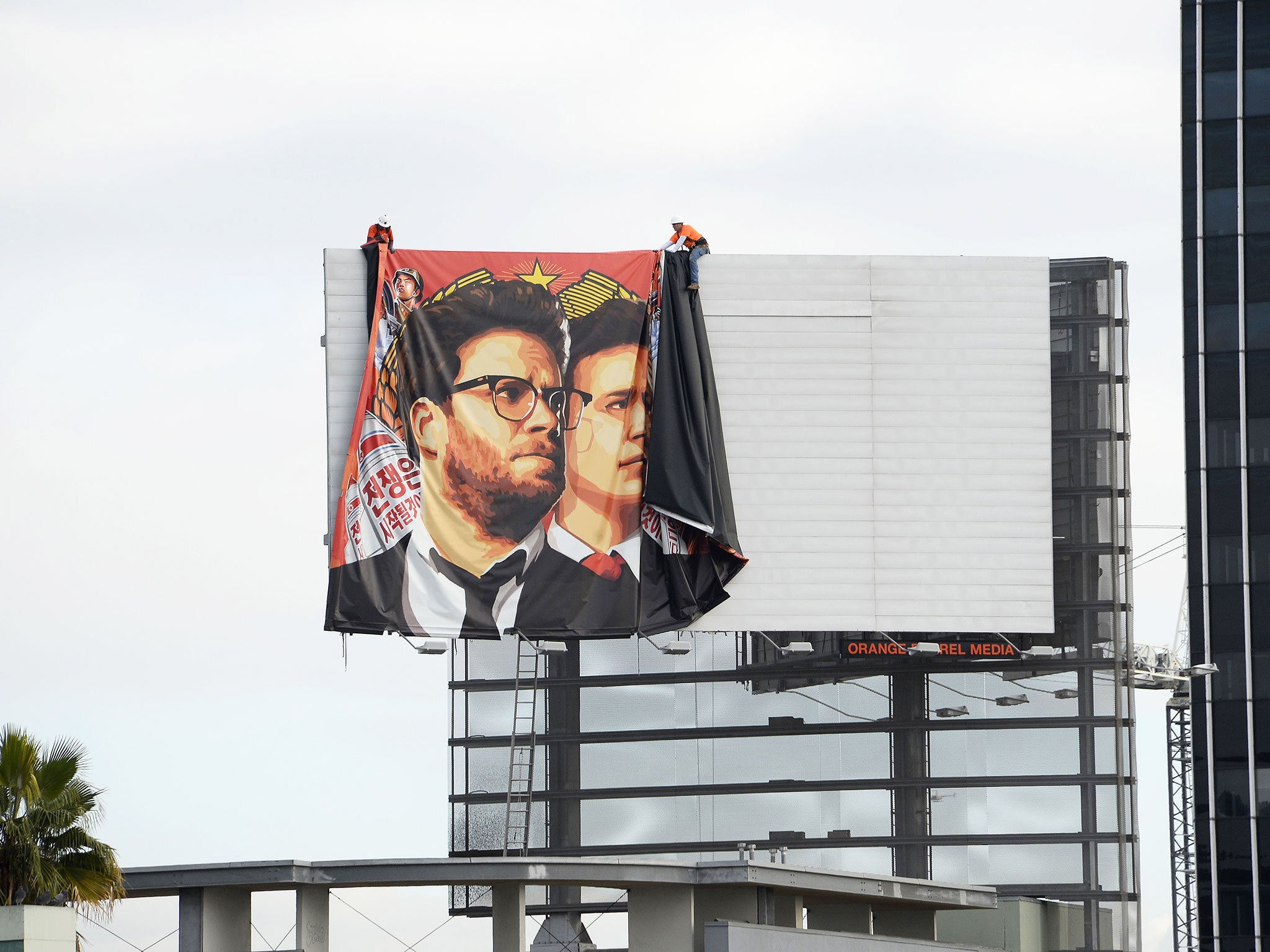Sony hackers issue new threat and demand that film is never released in any format
The new message was sent to Sony days after it cancelled the Christmas Day release of the Seth Rogen comedy

Your support helps us to tell the story
From reproductive rights to climate change to Big Tech, The Independent is on the ground when the story is developing. Whether it's investigating the financials of Elon Musk's pro-Trump PAC or producing our latest documentary, 'The A Word', which shines a light on the American women fighting for reproductive rights, we know how important it is to parse out the facts from the messaging.
At such a critical moment in US history, we need reporters on the ground. Your donation allows us to keep sending journalists to speak to both sides of the story.
The Independent is trusted by Americans across the entire political spectrum. And unlike many other quality news outlets, we choose not to lock Americans out of our reporting and analysis with paywalls. We believe quality journalism should be available to everyone, paid for by those who can afford it.
Your support makes all the difference.Hackers linked to North Korea have issued a new threat to Sony Pictures, demanding that the Hollywood studio suppress any materials related to The Interview, and ensure the film is never released on DVD or online.
The new message was sent to Sony days after it cancelled the Christmas Day release of the Seth Rogen comedy, which depicts the death of North Korean leader Kim Jong-un, following threats made against cinemas that screened the film.
President Barack Obama said yesterday that he believed Sony “made a mistake” by capitulating to the hackers. Speaking at a White House press conference, Mr Obama said he was “sympathetic” to the studio, but: “We cannot have a society in which some dictator someplace can start imposing censorship here in the United States. If somebody is able to intimidate folks out of releasing a satirical movie, imagine what they start doing when they see a documentary they don’t like, or news reports they don’t like.”
He added: “Even worse, imagine if producers and distributors and others start engaging in self-censorship because they don’t want to offend the sensibilities of somebody whose sensibilities probably need to be offended.”
Early on Friday, the FBI formally named North Korea as responsible for last month’s devastating cyber-attack on Sony, which crippled the studio’s computer systems and unloaded a vast cache of sensitive corporate data onto the web. US investigators said the malware used against Sony closely resembled that used previously by North Korean hackers, and that IP addresses coded into the malware had also been connected to other North Korean cyber-attacks.
In a statement, the FBI said: “North Korea’s actions were intended to inflict significant harm on a US business and suppress the right of American citizens to express themselves. Such acts of intimidation fall outside the bounds of acceptable state behaviour.” Mr Obama said the US intended to respond, “proportionately... at a place and time and manner that we choose.”
In an email sent to Sony executives on Thursday night, the hacker group, which styles itself “Guardians of Peace”, said it was “very wise” to pull The Interview, and warned that it still had access to the studio’s private data. “Now we want you never [to] let the movie [be] released, distributed or leaked in any form,” the message said. “And we want everything related to the movie, including its trailers, as well as its full version down from any website hosting them immediately.”
Actor-director George Clooney revealed on Thursday that he had circulated an open letter to “a large number” of film business leaders in Hollywood, hoping to rally the industry behind the studio in refusing to meet the hackers’ demands. “This is not just an attack on Sony,” the letter said. “It involves every studio, every network, every business and every individual in this country ... We know that to give in to these criminals now will open the door for any group that would threaten freedom of expression, privacy and personal liberty.”
Yet not a single person agreed to sign it. In an interview with Deadline, Clooney said Hollywood was “scared” of the consequences of standing up to the hackers. He also blamed the media for having largely ignored the story of the hack to focus on the gossip it revealed from behind the scenes at Sony. “What happens if a newsroom decides to go with a story, and a country or an individual or corporation decides they don’t like it?” he said. “We have a responsibility to stand up against this ... Somehow, we have allowed North Korea to dictate content, and that is just insane.”
Sony Pictures later defended its decision to cancel the release of `The Interview', saying the cancellation happened only because America's top cinema chains pulled out.
"This was their decision," said a Sony spokesman.
"Without theatres, we could not release it in the theatres on Christmas Day. We had no choice."
Sony insisted it had only cancelled the Christmas Day release and that it has been "actively surveying alternatives" to release the film on a different platform.
"It is still our hope that anyone who wants to see this movie will get the opportunity to do so," the spokesman said.
North Korea denied any connection with the hacking of Sony.
UN diplomat Kim Song said his country rejected The Interview but insisted there was "no relation" between its condemnation and the hacking.
Join our commenting forum
Join thought-provoking conversations, follow other Independent readers and see their replies
Comments